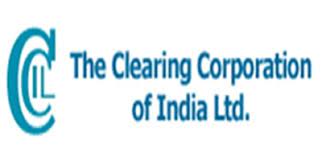
Clearing Corporation of India Limited (CCIL)

04.12.2023
Clearing Corporation of India Limited (CCIL) , Daily Current Affairs , RACE IAS : Best IAS Coaching in Lucknow
|
For Prelims: About the Agreement, Important points, Main objectives of the agreement For mains paper:About CCIL, About Bank of England (BoE), Background, Central CounterParty, |
Why in news:
The Reserve Bank of India (RBI) and the Bank of England (BoE) have recently signed a Memorandum of Understanding (MoU) for Cooperation and Information on Clearing Railways of India Limited (CCIL).
Important points:
- The MoU was signed by T Rabi Shankar, Deputy Governor of RBI, and Sarah Breeden, Deputy Governor for Financial Stability of BOE, in London.
- In October 2022, the European Securities and Markets Authority (ESMA) had said that it would withdraw the recognition of six Indian clearing houses, including the Clearing Corporation of India (CCIL), which acts as a trading platform for government bonds and overnight indexed swaps.
About the Agreement:
- The Memorandum of Understanding (MoU) establishes a framework for the Bank of England's (BoE's) reliance on the RBI's regulatory and supervisory activities while safeguarding the financial stability of the UK.
- The purpose of this collaboration is to protect the financial stability of the UK while facilitating international clearing activities.
- It will also enable BOE to assess CCIL's application for recognition as a Third Country Central Counterparty (CCP), which is a pre-requisite for UK based banks to clear transactions through CCIL. .
- The agreement also reflects the importance of cross-border cooperation to facilitate international clearing activities and the BOE's commitment to the governance of other regulators.
- This MoU reaffirms the interests of both parties in enhancing cooperation in line with their respective laws and regulations.
Main objectives of the agreement:
- The focus of this MoU is on cooperation and exchange of information related to Clearing Corporation of India Limited (CCIL).
About CCIL:
- It was established in April 2001.
- It works under the regulatory ambit of RBI.
- CCIL, as a Central Counterparty (CCP), plays a key role in providing clearing and settlement services for transactions in government securities, foreign exchange and currency markets within India.
- CCIL also offers non-guaranteed settlement for rupee interest rate derivatives and cross-currency transactions through CLS Bank.
- This company was incorporated with an authorized equity share capital of Rs 50 crore.
- CCIL's adherence to stringent principles governing its operations as a Financial Market Infrastructure (FMI) has resulted in it being recognized as a Qualified Central Counterparty (QCCP) by the Reserve Bank of India in 2014.
Promoter:
- State Bank of India, IDBI Bank Limited, ICICI Bank Limited, Life Insurance Corporation of India (LIC), Bank of Baroda and HDFC Bank Limited.
About Bank of England (BoE):
- The Bank of England (BoE) is the central bank of the United Kingdom.
- The BOE oversees the country's monetary policy and issues its currency.
- It also regulates banks, financial institutions and payment systems.
- The BoE sets monetary policy for the United Kingdom eight times a year, primarily by setting the bank rate, which is the interest rate paid to banks on their reserve balances.
- Governor of the Bank of England: Andrew John Bailey
- Bank of England Headquarters: London, England, United Kingdom
Background:
- Established in 1694 as a private bank to raise funds for the government, the BoE also functioned as a deposit-taking commercial bank.
- The Bank of England was nicknamed "The Old Lady of Threadneedle Street" from 1734.
- In 1844, the Bank Charter Act gave it a monopoly on the issue of bank notes in England and Wales.
- The UK government nationalized BOE in 1946 after the end of World War II.
- The BoE has been responsible for setting the UK's benchmark interest rate since 1997, when the government transferred its authority over UK monetary policy to the Bank.
Central CounterParty:
- Central Counter Party Clearing House (CCP) is operated by banks in each country and helps facilitate trade.
- Central counterparty clearing houses primarily work towards establishing efficiency and stability in the financial markets.
- Traders benefit from a central counterparty clearing house or CCP as it minimizes counterparty-related risks and other risks such as operational, settlement, market and legal risks.
Work:
- The main functions performed by the Central Counterparty Clearing House or CCP are clearing and settlement.
- It acts as a counterparty to both buyers and sellers and acts as an intermediary in their transactions.
The central counterparty collects funds from both buyers and sellers, which helps the CCP guarantee the terms of the trade between these two parties.